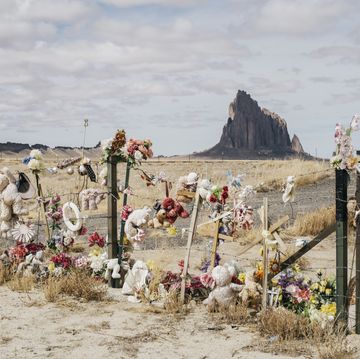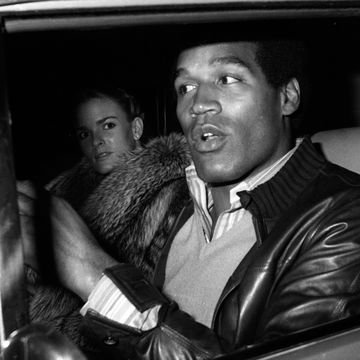What happened in a church in Charleston, South Carolina on Wednesday night is a lot of things, but one thing it's not is "unthinkable." Somebody thought long and hard about it. Somebody thought to load the weapon. Somebody thought to pick the church. Somebody thought to sit, quietly, through some of Wednesday night bible study. Somebody thought to stand up and open fire, killing nine people, including the pastor. Somebody reportedly thought to leave one woman alive so she could tell his story to the world. Somebody thought enough to flee. What happened in that church was a lot of things, but unthinkable is not one of them.
What happened in a Charleston church on Wednesday night is a lot of things, but one thing it's not is "unspeakable." We should speak of it often. We should speak of it loudly. We should speak of it as terrorism, which is what it was. We should speak of it as racial violence, which is what it was.
We should speak of it as an attack on history, which it was. This was the church founded by Denmark Vesey, who planned a slave revolt in 1822. Vesey was convicted in a secret trial in which many of the witnesses testified after being tortured. After they hung him, a mob burned down the church he built. His sons rebuilt it. On Wednesday night, someone turned it into a slaughter pen.
We should speak of it as an assault on the idea of a political commonwealth, which is what it was. And we should speak of it as one more example of all of these, another link in a bloody chain of events that reaches all the way back to African wharves and Southern docks. It is not an isolated incident, not if you consider history as something alive that can live and breathe and bleed. We should speak of all these things. What happened in that church was a lot of things, but unspeakable is not one of them.
Not to think about these things is to betray the dead. Not to speak of these things is to dishonor them. Let Nikki Haley, the governor of South Carolina, look out her window at the flag of treason that is flown proudly at her state capitol and think about these things, and speak of them, before she pronounces herself so puzzled at how something like this could happen in South Carolina, the home office of American sedition.
Let Hillary Rodham Clinton and Jeb Bush, both of whom want to lead this troubled country, consider what it meant to absent themselves from campaign events in Charleston and think of these things and speak of them before they turn to their consultants about whether or not staying in a grieving city was what a leader should have done.
Let the elite political media that follows the two of them, roughly thrown into a maelstrom of actual news, look out onto the streets of Charleston and realize that politics exist for the purpose of governing a country, and not simply to entertain it.
Let Squint and the Meat Puppet think about these things and speak of these things before inviting Donald Trump, who is a clown and a fool, to come on national television and talk about his hair. Not to think about these things is to betray the dead. Not to speak of these things is to dishonor them.
Think about what happened. Think about why it happened. Talk about what happened. Talk about why it happened. Do these things, over and over again. The country must resist the temptation present in anesthetic innocence. It must reject the false comfort of learned disbelief and the narcotic embrace of concocted surprise. There is a ferocious underground fire running through American history. It rages unseen until it flares again from the warm earth. It has raged from the death of Denmark Vesey in 1822 to the death of the Reverend and state senator Clementa Pinckney on Wednesday night.
This was not an unspeakable act. Sylvia Johnson, one of only three survivors of the massacre, is speaking about it.
"She said that he had reloaded five different times… and he just said 'I have to do it. You rape our women and you're taking over our country. And you have to go.'"
There is a timidity that the country can no longer afford. This was not an unthinkable act. A man may have had a rat's nest for a mind, but it was well thought out. It was a cool, considered crime, as well planned as any bank robbery or any computer fraud. If people do not want to speak of it, or think about it, it's because they do not want to follow the story where it inevitably leads. It's because they do not want to follow this crime all the way back to the mother of all American crimes, the one that Denmark Vesey gave his life to avenge. What happened on Wednesday night was a lot of things. A massacre was only one of them.

Charles P Pierce is the author of four books, most recently Idiot America, and has been a working journalist since 1976. He lives near Boston and has three children.








